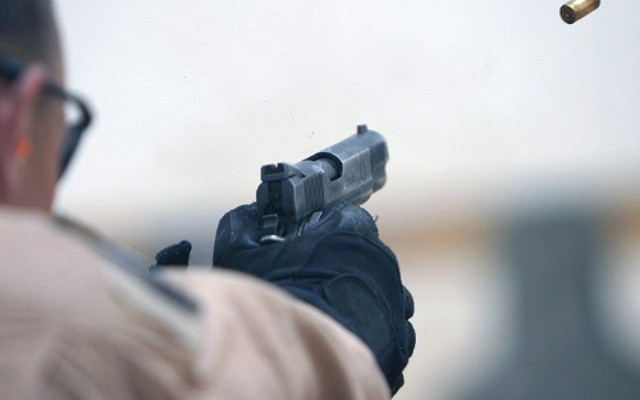
Mass shootings are terrifying and the best way to improve your chances of surviving an attack is to consider all possible scenarios. Make the necessary preparations and remain calm because you are on your own during an active shooter attack, at least until the authorities arrive. (h/t to UKSurvivalGuides.com)
Hopefully, you never have to use the tips below. However, should you find yourself in the middle of an active shooter incident, you at least have an idea of what to do and where to go.
Take note of multiple exits
Whenever you enter buildings or the cinema, a library, restaurant, store, or theater, remember where the exits are located.
If you do encounter a shooter, don't head for the main exit with the rest of the crowd. Cut through a store, head for the stock room, then exit through the back door.
Take cover
Remain calm when the shooting starts. Resist the urge to panic and scream so you don't make yourself a target.
Hide behind large objects that are sturdy enough to protect you from a bullet.
Stay away from the shooter’s direct line of sight
Imagine that the shooter is the center of a clock. Position yourself at the shooter’s 10 o’clock or 2 o’clock position. Doing this forces the shooter to change his position, which may reduce the accuracy of his shots. (Related: What we should teach children about surviving a school shooting.)
Keep your arms by your side
If you're shot in the arm, there's a low chance that the bullet will cause a fatal injury, unlike a shot to the chest from the side.
When you're trying to help someone escape the shooter, keep their head low and position their body away from the attacker. Remain still, then start moving when the shooter is reloading his weapon.
Engage when he reloads
If you have no other choice but to engage the shooter, charge at him from behind or from the side.
Rush him when he reloads and if you try to grab his gun, hold it as tight as you can then pull it toward your upper body. Once you grab hold of the gun, call others for help.
You have at least four to seven seconds to engage during reloading, but this depends on the attacker's weapon and shooting experience. Most shooters are not tactically trained and they will take longer to reload.
Charge fast and strong
The average person can quickly cover an area of about 30 feet before an inexperienced shooter finishes reloading his weapon. If you're fast enough, you can engage the shooter if you have to.
Take note that you do this at your own risk.
Recruit a stack team
If you decide to engage the shooter, recruit a group with tasks that will make your attack more effective. This group, called a stack team, is a common tactic among law enforcement and the military when entering buildings.
Recruit at least two other people to be part of your team. For example, you can attempt to grab the weapon while the other two members directly attack the shooter.
Distract the shooter
Distracting the shooter gives the stack team a bigger opening for their attack. Set off a distraction opposite the stack teams location, and get them to charge when the shooter is distracted.
Find makeshift weapons
If you are not armed, find makeshift weapons like a fire extinguisher.
Do not engage an attacker if you're unarmed.
Be careful with the gun
If you manage to disarm the shooter, keep the gun out of his reach.
Unload and disable the weapon and do not walk out of the door with the gun in your hand. The police may not know who the shooter is, and you don't want them to shoot you by mistake.
Play dead
If you are wounded or if you are unable to escape the building, lie face down on the ground and play dead. Try to control your breathing, especially if the shooter is close enough to look at you. Use this technique as a last resort because it doesn't guarantee that he won't still shoot you.
Develop a plan for your workplace and practice it
Make sure your school, office, place of worship, etc., has a plan to deal with an active shooter incident. Practice the plan regularly to make sure everyone knows what to do and where to go if SHTF.
You don't have to engage a shooter unless you have no other choice. In these situations, your main goal is to escape and stay alive.
You're not a coward if you exit a building for safety. Do your part to help everyone who's still inside by calling law enforcement. Describe the shooter and give as much information as you can about his location and the weapon he's using.
Sources include:
Please contact us for more information.














